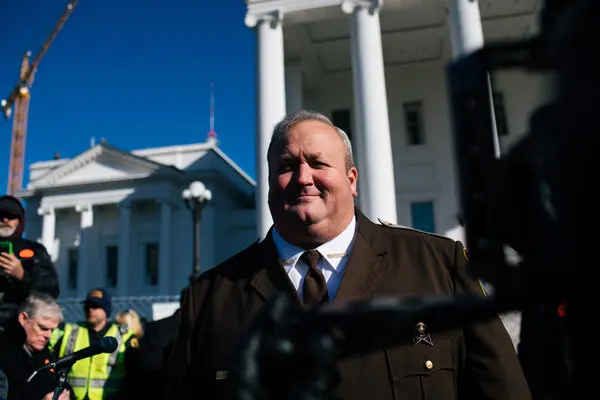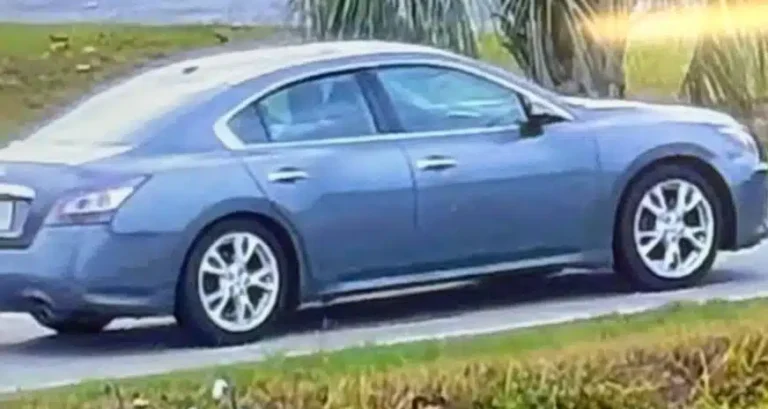Trump Pardons Convicted Virginia Sheriff in Bribery Case
CULPEPER COUNTY, VA — In a move that’s drawn condemnation from both sides of the aisle, former President Donald Trump has pardoned Scott Jenkins, the former sheriff of Culpeper County, Virginia, who was convicted of bribery, fraud, and abuse of power earlier this year. Jenkins was sentenced to ten years in prison after federal prosecutors revealed he accepted over $75,000 in bribes in exchange for granting “auxiliary deputy” badges to unqualified individuals.
The pardon, issued in late May and celebrated on Trump’s Truth Social, framed Jenkins as a victim of political persecution. But critics argue the move represents yet another example of the former president using his power to reward loyalty over justice, especially among sheriffs aligned with his political agenda.
Badge-for-Cash Scandal Rocked Culpeper
The case against Jenkins stemmed from his misuse of Virginia’s auxiliary deputy program. Prosecutors said he issued official sheriff badges, body armor, and firearm privileges to individuals who had no qualifications — some even from out of state — in exchange for large donations or personal favors.
The recipients reportedly used their badges to evade traffic tickets, bypass TSA lines, carry concealed weapons, and even attempt to access priority COVID-19 testing. Jenkins’ abuse of power extended to attempting to restore firearms rights for donors and giving badges to controversial figures like John Guandolo, an anti-Muslim conspiracy theorist.
“He was giving out real law enforcement authority like party favors — and doing it for profit,” one prosecutor stated.
Pardon Championed by Right-Wing Allies
Jenkins’ pardon was reportedly pushed by Ed Martin, a known “Stop the Steal” supporter who now works in the Justice Department’s pardon office under Trump’s restructuring. Martin celebrated the move with the slogan “No MAGA Left Behind,” while other backers like Michael Flynn called the prosecution politically motivated.
Notably, Jenkins continued to run for re-election while under indictment, using the slogan “Make Virginia Great Again.” He ultimately lost to a moderate candidate promising transparency and good governance.
History of Loyalty-Powered Pardons
This is not Trump’s first controversial pardon. Jenkins now joins a list that includes:
-
Sheriff Joe Arpaio – pardoned for racial profiling and contempt of court
-
Julie and Todd Chrisley – reality stars convicted of tax evasion and financial fraud
-
Others accused of public corruption, costing taxpayers over $1.3 billion in unpaid restitution, according to a House Judiciary review
Many observers view these pardons as an effort to delegitimize federal prosecutions and install loyalists in local law enforcement.
Public Backlash and Political Fallout
Even Virginia Attorney General Jason Miyares, a Republican, voiced his opposition to the pardon, calling it a threat to public trust. Local residents and former law enforcement officials expressed outrage, citing how Jenkins’ actions endangered community safety and allowed political donors to exploit law enforcement tools.
“He was a political operator in a badge,” said one local resident in an interview with NPR.
Jenkins’ record is now legally cleared, and nothing prevents him from running for office again.
A National Pattern of Undermining Institutions
Jenkins’ case is just the latest in a pattern of Trump’s support for “constitutional sheriffs” — lawmen who reject federal authority in favor of a far-right interpretation of the Constitution. Jenkins had publicly declared he would “deputize every county resident” to dodge gun laws and routinely engaged in nepotism, misinformation, and authoritarian rhetoric.
As noted by Democracy Docket, these pardons are not just about individual mercy — they’re a systemic effort to bend law enforcement to political ends.
Have thoughts about Trump’s use of pardons or Jenkins’ case in Virginia? Join the conversation at SaludaStandard-Sentinel.com and let us know what accountability should look like.







